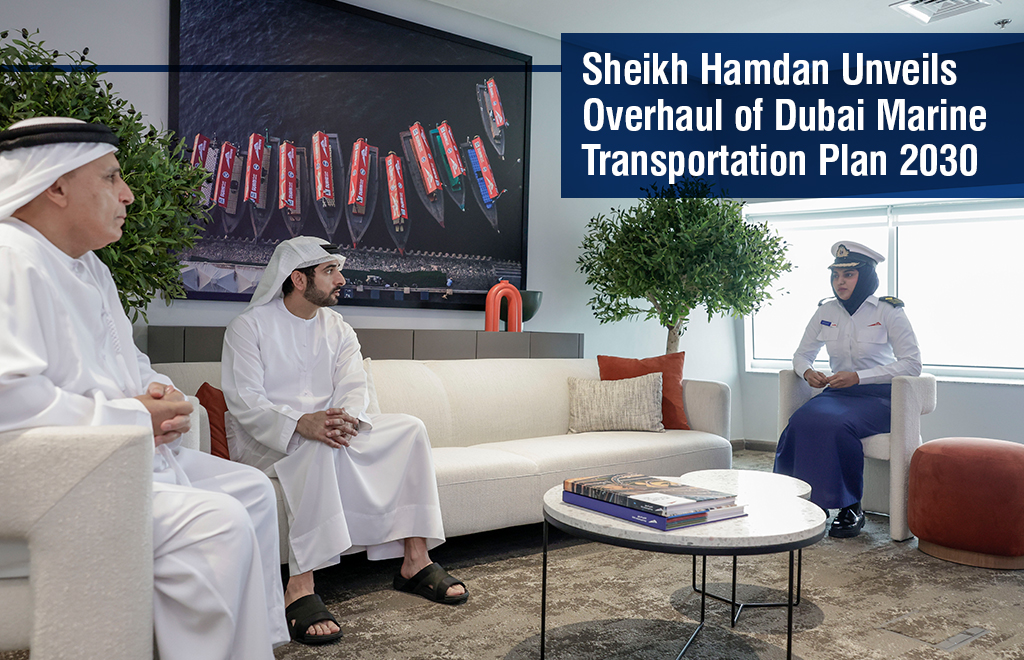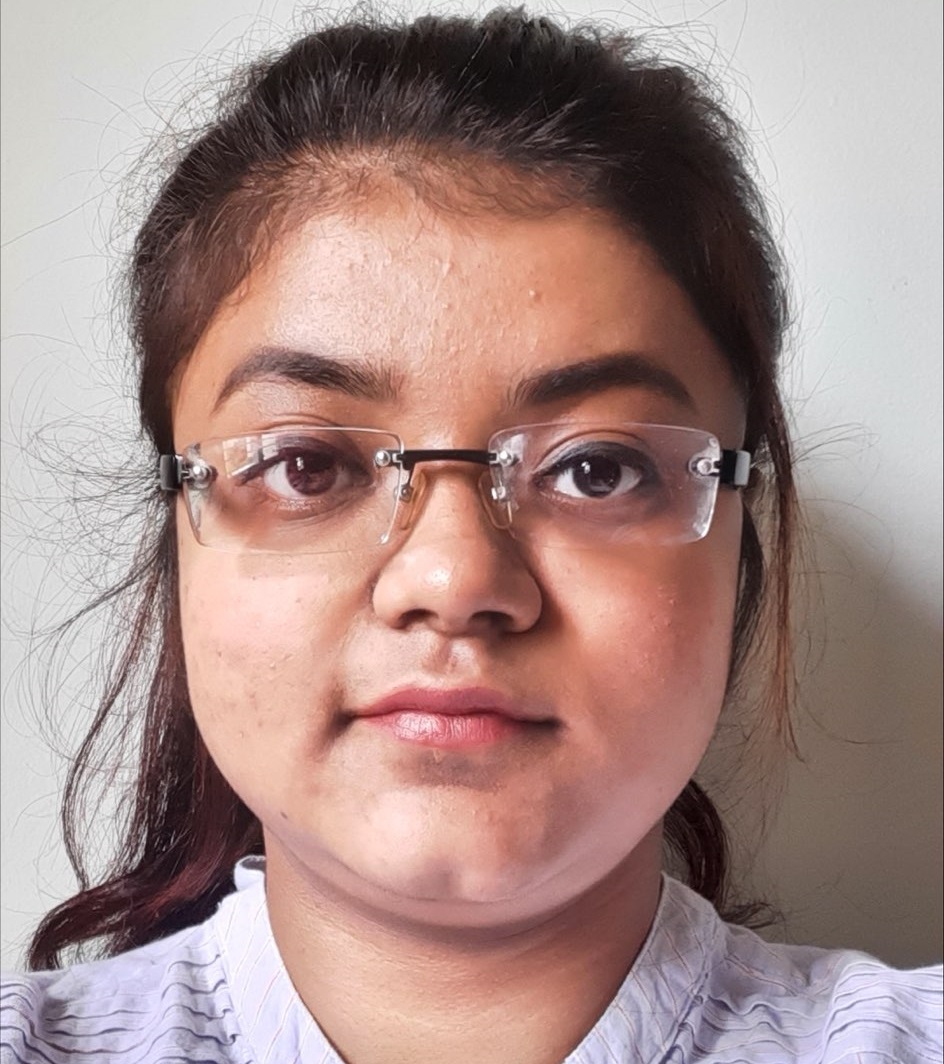
Sheikh Hamdan Unveils Overhaul of Dubai Marine Transportation Plan 2030
The Crown Prince of Dubai and Chairman of The Executive Council of Dubai, Sheikh Hamdan bin Mohammed bin Rashid Al Maktoum has approved the Marine Transport Master Plan 2030 to increase the usage of the marine transportation system in the Emirates by 188%. The aim is to reach a target of more than 22.2 million passengers by 2030.
The scheme will initially increase the number of served passengers by 50%, as the current number of passengers of Emirate’s Marine Transport is 14 million.
To implement this master plan, the Roads and Transportation Authority of Dubai (RTA) will collaboratively work with the private sector. The crown prince, Sheikh Hamdan has recently visited the RTA offices to recheck on the plan overview addressed by the DG and chairman of the Board of Executive Directors of RTA, Mattar Al Tayer.
“I have approved a new plan to develop Dubai’s maritime transport network and expand it by 188% with the aim of serving 22 million passengers by 2030. I also reviewed an innovative project being developed by RTA in collaboration with the private sector to manufacture the world’s first 3D-printed electric ‘abra’. I have closely followed the successful trial run of the autonomous abra. It was a pleasure to meet Hanadi Al Doseri, the first Emirati female captain of a mass marine transport vehicle,” the crown prince Sheikh Hamdan posted on his official X platform.
Dubai Marine Transport Master Plan 2030:
Dubai Media Office Confirmed the approval of Dubai Transport Master Plan 2030 by Sheikh Hamdan. According to their statement, the main highlights of the plan are,
- 51% increase in marine transport users
- 188% extension of the marine transport network
- 65% rise in marine transport stations
- 400% expansion of marine transport lines
- 32% growth of the marine transport fleet
The transport plan will increase the length of the network of marine transport by 188% from 58 Kilometres to 158 kilometres. The plan will also grow the number of users targeting 51% taking it from 14.7 million to 22.5 million annually by 2030.
The number of transport stations will increase from 48 to 79 along with the Dubai Water Canal, Dubai Creek, the coastline area of the Arabian Gulf, and other waterline projects.
The plan also involves increasing the current number of passenger transportation lines from 7 to 35, marking a surge of 400 percent. In addition, it will also increase the number of fleets by 32 percent from 196 to 258 marine carriers.
3D Printed Abras
The master transportation plan expands marine transportation in the Emirates, increasing the number of served passengers and launching the World’s first electric Abra utilising 3D printing technology.
The 3D-printed boat, capable of carrying 20 passengers at a time, will feature a unique design that is inspired by the Emirati Abra rides. The initiative will cut down the time to manufacturing time of the boat by 99% and also enable 30% of cost-savings.
The crown prince of Dubai, Sheikh Hamdan also reviewed the performance and operational metrics of the Al Garhoud RTA Marine Maintenance Centre.
Al Garhoud RTA Marine Maintenance Centre is the largest organization to provide the best marine maintenance facility in the region spread over 5,000 square meters, including five well-defined workshops, a dock to accommodate boats in lengths up to 32 metres, a pier of 250 metres, with a lifting capacity up to 100 tonnes a boat crane, three storage sections, special zones designed to maintain a proper workforce of the internal and external marine task, administrational works, and resting zone for workers.
At a time, the workshop unit also can accommodate up to 16 boats and reduces the maintenance cost by 50 percent.
Sheikh Hamdan also praised the Al Garhoud RTA Marine Maintenance Centre for the quality maintenance system of water transportation modes, which includes the installation of remote monitoring sensors and devices on the boats.
The Roads and Transportation Authority also has a plan to implement a real-time monitoring facility powered by AI (Artificial Intelligence) with the purpose of analysing the data, capturing the faults, and based on that planning ahead with all the requirements.
Autonomous Electric Abras
Earlier, the Crown Prince was also updated about the run of the world’s very first autonomous electric abra. During its initial trial days, out of six major levels, the electrical abra has cleared Level 4 of the International Driving Automation Index.
The trial stage involved operating the electric abras fully autonomously, without appointing any captain. The trial has covered areas between Al Jaddaf Station and Dubai Festival City Marine Transport Station and completed the mission with 100 percent perfection. The current aim is to fulfill and successfully thorough the level-5 index by 2024.
Mattar Al Tayer, director-general and chairman of the Board of Executive Directors of the RTA said, “The autonomous electric abra was crafted locally. In its design and production, emphasis was placed on retaining the abra’s heritage identity. The abra boasts a host of advanced features highlighted by zero carbon emissions, operating and maintenance cost savings of 30 per cent and the elimination of noise compared to diesel-powered abras. Equipped with two electric motors, it is capable of achieving a maximum speed of seven knots. It is fitted with an autonomous control system and four lithium batteries that ensure an operating time of seven hours.”
On the including features of eclectic abras, Al Tayer explained that the autonomous rides include advanced features such as emission of zero percent carbon, savings of maintenance and operation cost up to 30 percent, and minimising the noise compared to the other diesel-operating abras.
During the visit to RTA, the crown prince also met Hanadi Mohammed Al Doseri, the first Emirati woman who captained a marine mass transport boat. Al Doseri also unfolds her journey while securing the requirements needed to navigate sub-200-tonne ships in coastal voyages. The crown prince praised the captain for her achievements.
The qualification of Hanadi Mohammed Al Doseri includes five safety training certifications compliant with the International Convention on Standards of Training, caretaking and Certification for Seafarers. She has also undergone maritime services for a duration of three months, including two other specialized training certifications.
She is also a licensed pilot for the category of 12-metre and 24-metre sea-faring craft. Currently, she is in the process of securing the license to captain sub-200-tonne ships for coastal journeys.

 Previous Article
Previous Article